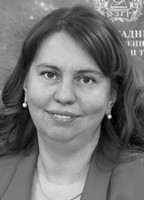Rating benefits of large-scale projects for host region economy and image
Фотографии:
ˑ:
Teoriya i praktika fizicheskoy kultury №6 2017, pp.75-77
Dr.Sc.Econ., Professor Y.V. Vertakova1
PhD, Associate Professor M.G. Klevtsova1
Dr.Sc.Econ., Professor V.A. Plotnikov2
1Southwest State University, Kursk
2St. Petersburg State University of Economics, St. Petersburg
The study analyses benefits of large-scale sport projects for the regional economy, including the sport market profit distribution under the sponsorship projects, proceeds from broadcasting and merchandising rights etc. A variety of qualitative and quantitative criteria were applied to rate benefits of a few Winter Olympics. The study data and analyses demonstrated that the large-scale sport events may be among the key instruments to build up image of the host region and stimulate its socio-economic development. A special emphasis is made on the positive effects of Olympic Games on the host region economic and social development and environmental protection aspects. The study data were used to assess the relevant effects on the image of the Krasnodar Territory, with the image being presented in the form of an economic benefit metering mathematical model. The study gives an integral estimate of the region’s image versus the scope of the sport event. A multifactor econometric model was used to analyze the correlation of the host region’s economic benefits from the large-scale sport events. A set of specific indicators was offered to rate the economic benefits of sport projects and their qualitative effects on the image of the Krasnodar Territory.
Keywords: sport project, region’s image, socio-economic development, international sport events, sport industry.
References
- Babkin A.V., Novikov A.O. Klaster kak sub'ekt ekonomiki: sushchnost, sovremennoe sostoyanie, razvitie [Cluster as a subject of economy: essence, current state, development]. Nauchno-tehnicheskie vedomosti SPbGPU. Ekonomicheskie nauki, 2016, no. 1 (235), pp. 9-29.
- Vertakova J.V., Plotnikov V.A. Tipologizatsiya podkhodov k formirovaniyu i razvitiyu propulsivnykh klasterov v ekonomike regiona [Typologization of approaches to formation and development of propulsive clusters in region's economy]. Ekonomika i upravlenie, 2016, no. 3, pp. 10-18.
- Vertakova J.V., Klevtsova M.G., Polozhentseva J.S. Formirovanie tochek klasternogo rosta ekonomicheskogo razvitiya territoriy [Formation of cluster growing points of economic development of territories]. Vestnik OrelGIET, 2015, no. 2 (32), pp. 56-61.
- Vorozhtsova L.A., Vertakova J.V. Natsionalny PR-proekt: sovremennye tekhnologii uspekha [National PR-project: modern technologies of success]. PR i reklama: traditsii i innovatsii, 2013, no. 8-2, pp. 28-33.
- Demidenko D.S. Teoreticheskie aspekty otsenki effektivnosti byudzhetnykh raskhodov [Theoretical aspects of assessment of efficiency of budgetary expenditures]. Nauchno-tekhnicheskie vedomosti Sankt-Peterburgskogo gosudarstvennogo politekhnicheskogo universiteta. Ekonomicheskie nauki, 2009, no. 3 (79), pp. 255-262.
- Kalieva O.M., Vakunova I.V., Marchenko V.N., Bolshakova J.S. Faktory, vliyayushchie na formirovanie imidzha goroda [Factors affecting city's image formation]. Molodoy ucheny, 2014, no. 2, pp. 439-441.
- Levin E.A. Futbol kak fenomen obshchestvenno-politicheskoy zhizni v sovremennom mire [Football as phenomenon of socio-political life in the modern world]. Izvestiya Sankt-Peterburgskogo gosudarstvennogo ekonomicheskogo universiteta, 2015, no. 2 (92), pp. 98-101.
- Menyaem pravila igry: Perspektivy razvitiya mirovoy industrii sporta do 2015 goda. Issledovanie PricewaterhausCoopers [Shifting the goalposts: Prospects for development of the world sports industry until 2015. PricewaterhausCoopers survey], December 2011.
- Rodina V.V. Imidzh rossiyskoy promyshlennosti kak faktor ee konkurentosposobnosti [Russian industry's image as a factor of its competitiveness]. Izvestiya Sankt-Peterburgskogo gosudarstvennogo ekonomicheskogo universiteta, 2016, no. 1, pp. 89-93.
- Grigor'ev V.I., Plotnikov V.A. Gosudarstvenno-chastnoe partnerstvo v razvitii fizicheskoy kultury i sporta [Public-Private Partnership in Development of Physical Culture and Sport]. Teoriya i praktika fiz. kultury, 2014, no. 8, P. 29.
- Ispas A., Candrea A.N. Promoting tourist destinations through sport events. The case of Braşov. Revista de Turism: Studii si Cercetari in Turism, 2010, no. 10. Р. 61-67.
- Olympic Games Impact Study: Final report. PricewaterhausCoopers. December 2005. 22 р.
- Rose A.K., Spiegel M.M. The Olympic Effect. Economic Journal, Royal Economic Society. 2011. Vol. 121 (553). P. 652-677.
- Staněk M. Pozice sportu v rámci veřejné politiky místní samosprávy ve velkých městech – přípravná fáze případové studie hlavního města Prahy The position of sports within the public policy of the local administration in large cities – preparation phase of a case study of the capital city of Prague. Acta Universitatis Palackianae Olomucensis: Gymnica. 2007, no. 37 (4). Р. 51-53.



 Журнал "THEORY AND PRACTICE
Журнал "THEORY AND PRACTICE